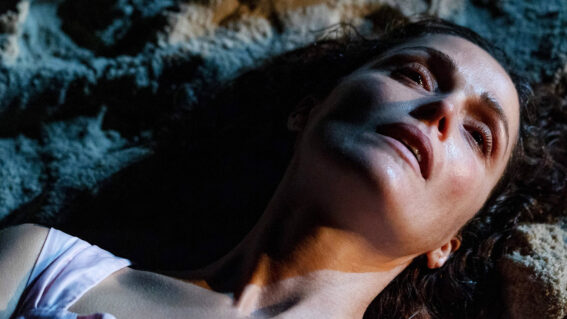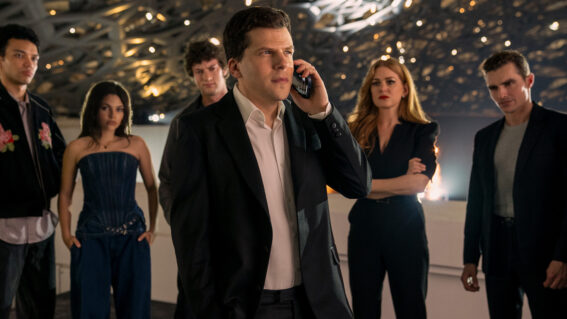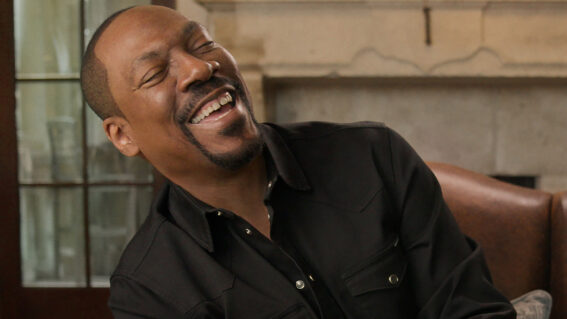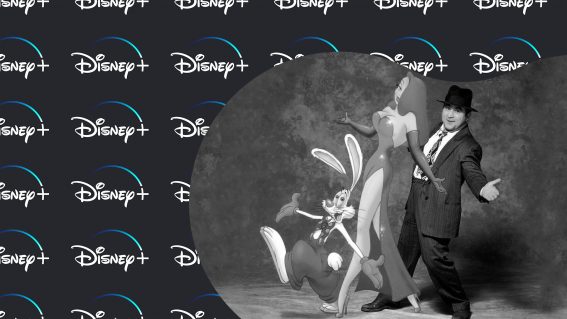Ha Ha, Boo Hoo: When Comic Actors Go Serious
When an actor primarily known for comedic roles takes on a more dramatic character, the results are reliably interesting. The proverbial tormented soul of the comedian always manages to bring something to a dramatic role, and more so a dark role. In this week’s blog I’m gonna talk about some of my favourite examples.By 1997, […]
When an actor primarily known for comedic roles takes on a more dramatic character, the results are reliably interesting. The proverbial tormented soul of the comedian always manages to bring something to a dramatic role, and more so a dark role. In this week’s blog I’m gonna talk about some of my favourite examples.By 1997, Steve Martin was far removed from his comedic heyday, which in my mind ended with 1991’s LA Story. He’d begun his slide towards reprehensible family friendly films with the Father of The Bride movies, and taken a stab at a straighter dramatic role with Big Chill director Lawrence Kasdan’s LA racism meditation Grand Canyon.
But with David Mamet’s masterful mystery The Spanish Prisoner, he introduced a dark side to his genial presence that benefits the film hugely. Functioning as kind of a spiritual sequel to Mamet’s con man masterpiece House of Games, The Spanish Prisoner stars Campbell Scott (Singles) as a young inventor of a mysterious “formula” who is beset from all sides by people coveting his wares through a variety of methods.
Martin plays a charming millionaire who meets Scott apparently by chance, and like many Mamet characters, is prone to speechifying about human nature. Martin’s natural warmth invites Scott (and the viewer) in, and as his classically Mametian duplicitousness slowly comes to the fore, Martin is a joy to behold.
The Spanish Prisoner is one of my all-time favourite movies, and Martin’s chilling performance is only one of many reasons to check it out.
Owen Wilson’s widely reported personal troubles has shown the actor to have his fair share of demons, and it’s tempting to believe they informed one of his early leading roles, in 1999’s The Minus Man. He plays “Vann”, a quietly spoken drifter who passively ingratiates himself into the lives of the inhabitants of a small town, then takes it upon himself to kill some of them with a hipflask full of poison.
An unnerving and unique take on the serial killer genre, The Minus Man makes marvellous use of Wilson’s laconic charm and laidback demeanor. He never seeks out his victims, they all seem strangely drawn to him. In Vann’s mind, he’s doing his victims a favour, and their deaths are generally preceded by complaints about their lives. Wilson’s performance hints at great dramatic depths, and it would be cool to see him explore these in films not directed by Wes Anderson.
Featured among The Minus Man‘s stellar supporting cast are Janeane Garofalo; Brian Cox and Mercedes Ruehl. Dennis Haysbert and the great Dwight Yoakim and are both awesome as two cops Vann dreams are pursuing him.
The Minus Man is based on a novel by Lew McCreary, and is the sole directorial credit for Hampton Fancher, one of Blade Runner‘s three credited screenwriters. It’s well worth seeking out.
http://www.youtube.com/watch?v=ln3bTjYi9RE&feature=related
Wilson’s old friend Ben Stiller ran a lot of his post-Zoolander comedic goodwill into the ground with bland comedies like Duplex and Along Came Polly, not to mention the Night at the Museum movies and the Focker sequels. He went someways to reclaiming his mojo with 2008’s Tropic Thunder, and gave one of the best comedic performances of his career in last year’s Greenberg.
His role in the latter wasn’t exactly straight drama, but it was a lot darker than most of the titles mentioned above, and saw Stiller tapping into his dramatic reserves long since absent from the screen.
The frankly painful trailer for 1998’s Permanent Midnight posits the film as a rock n roll Hollywood drugs story, but the film is a more grounded evocation of the relentlessly debilitating effects of addiction.
The film was based on a memoir by Jerry Stahl, who wrote for shows like Moonlighting; thirtysomething and ALF while nursing a heroin addiction. So to answer that longstanding question, yes, the people behind ALF were on drugs. The film even goes behind the scenes of an ALF-like show and one section has a strung-out Stahl tormented by the puppet star of the show. It’s nutty stuff.
Stiller never quite seems fully at ease in the lead role, but his trademark manic intensity is put to good use. Stiller buddies like Janeane Garofalo, Andy Dick, (and Owen Wilson of course) show up, with bigger supporting roles for Elizabeth Hurley and Mario Bello. The awesomely scummy Peter Greene (Zed from Pulp Fiction) is great as one of Stahl’s enablers.
Stiller essayed another dramatic performance the same year in Neil LaBute’s nihilistic suburban drama Your Friends and Neighbours and also toned down his comedic side somewhat for the wonderful (and sadly underseen) Zero Effect. Then There’s Something About Mary came out, and he seemed locked into the comedy track.
Dismissed at the time as a too-weird flop, 1996’s The Cable Guy (directed by Stiller) has developed a better reputation over the years as a darkly comic cult film. Jim Carrey famously got Hollywood’s first ever $20 million payday for his role as the cable installer who ingratiates himself into the life of one of his customers, played by Matthew Broderick.
Although a high level of caricature is present, Carrey’s performance is much darker than any of his officially “straight” films (like The Truman Show, which was great, The Majestic, which sucked, and The Number 23, which was whackadoodle terrible).
The Judd Apatow-produced film makes for fascinating viewing from the perspective of today’s Apatow-dominated comedy landscape – the tone was clearly ahead of its time, and it has amusing supporting performances from a pre-fame Jack Black and, hey! Owen Wilson.
Robin Williams has always vacillated between comedic and dramatic roles, and affected a nice middle ground with 1982’s The World According To Garp. In 2002 however, he went superdark in two notable films. Mark Romanek’s underrated One Hour Photo saw Williams play a balding platinum-haired photo clerk who becomes obsessed with a family whose photos he develops. This film came and went pretty quickly, but Williams gives a great performance and manages to infuse his ostensibly awful character with a considerable amount of humanity.
For Insomnia, Christopher Nolan’s follow-up to Memento, Williams played an outright psycho and his performance often overeaches into caricature, but the film maintains novelty value for having Mork say “fuck” a lot.
Other notable dramatic performances from actors known primarily for comedy include Albert Brooks in Out of Sight (a dynamic he appears to be tapping into again for the upcoming film Drive, which looks super-awesome); Mike Myers in the guilty-pleasure disco drama 54 and Dane Cook in Kevin Costner’s weird serial killer flick Mr. Brooks. Cook barely had a comedic film legacy to negate, but it’s still amusingly odd seeing him blackmail Costner’s suburban murderer.
I’d love to see Eddie Murphy try something dark (Dreamgirls doesn’t count). The famously guarded actor loves to hide behind broad characters, and his role in Bowfinger hinted at untapped pathos. I’d love to see him do something that delved further. Are there any comedic actors you’d like to see play dramatic? Or other examples you like? Comment below yeah!






















